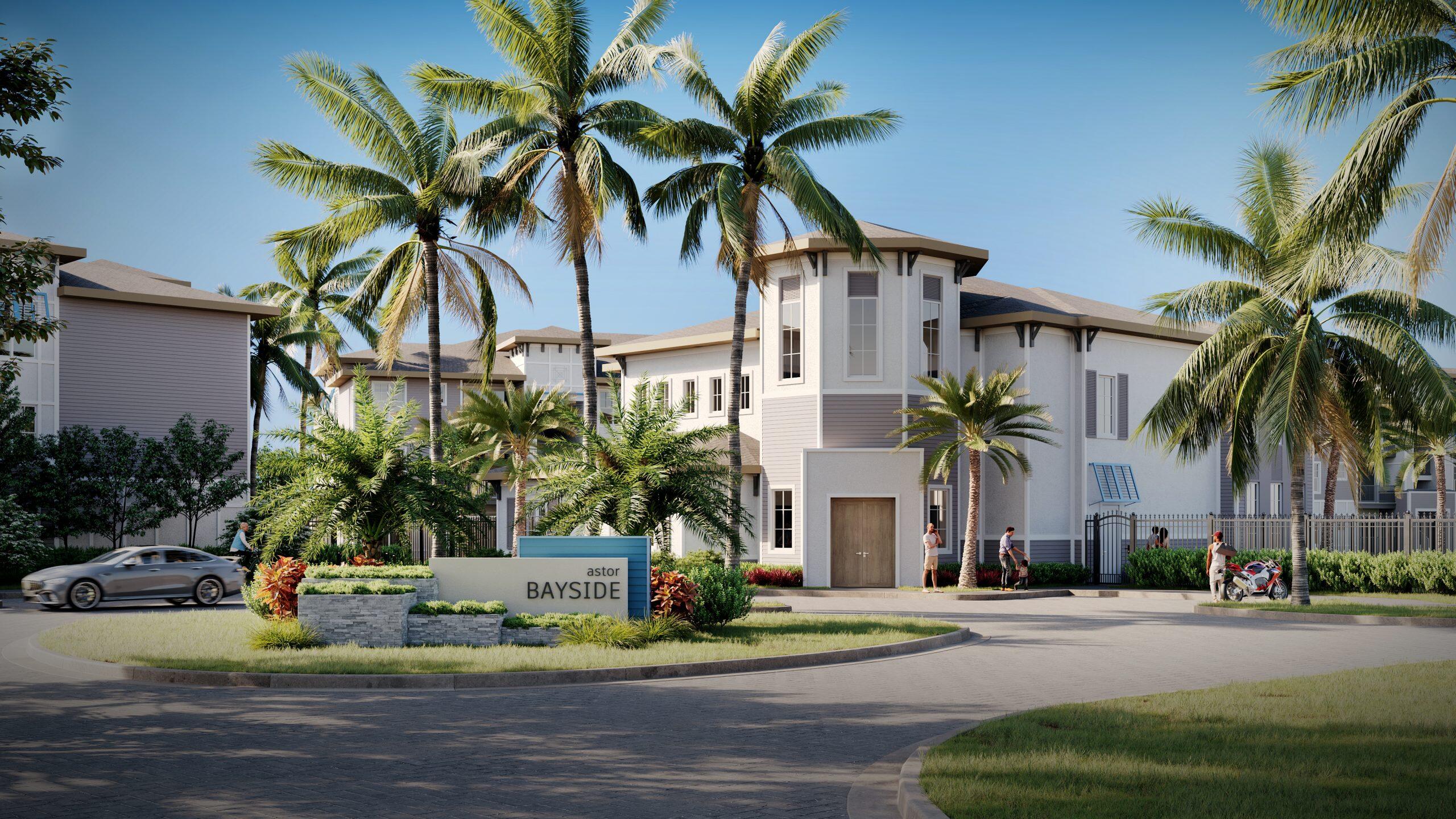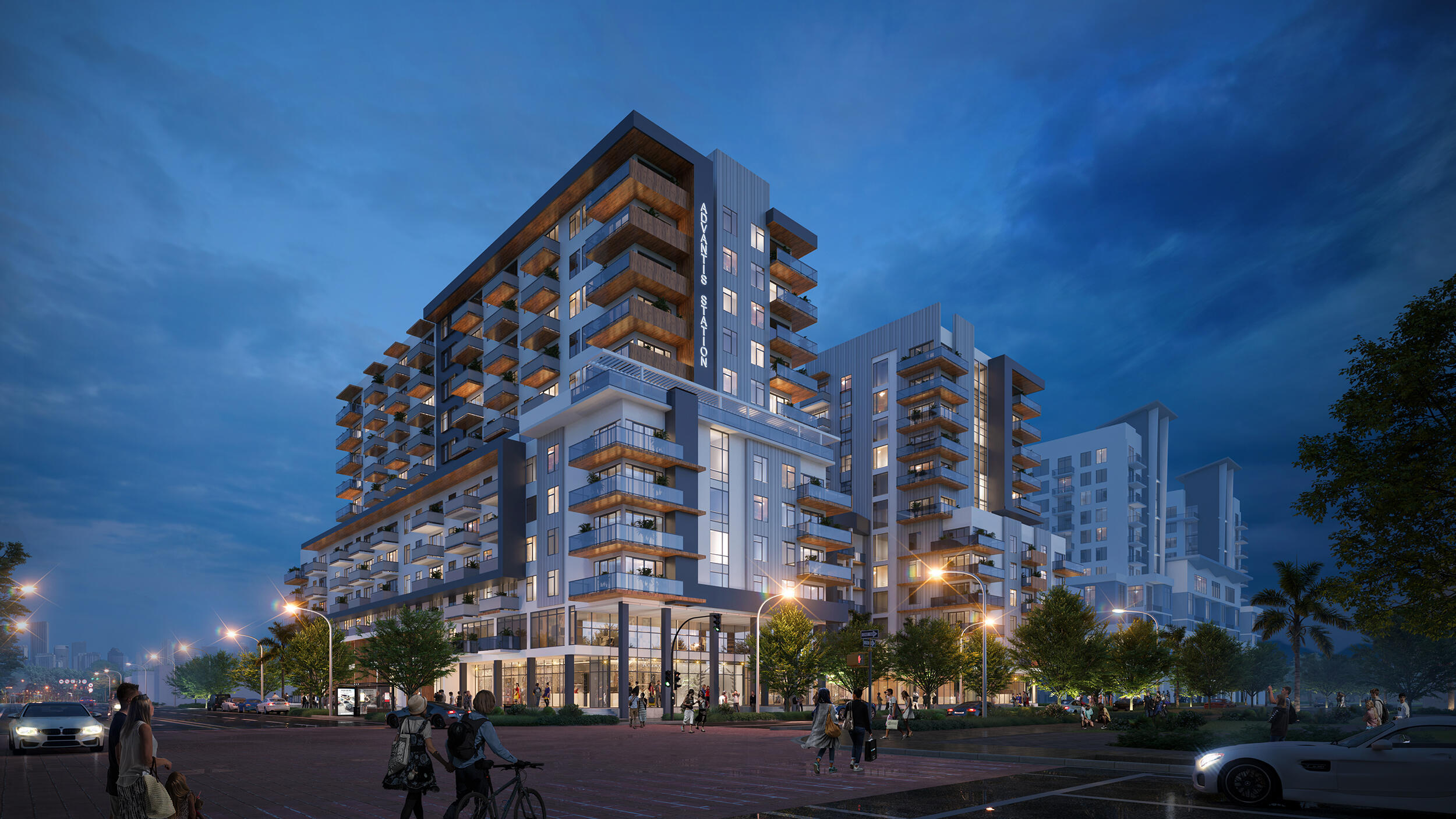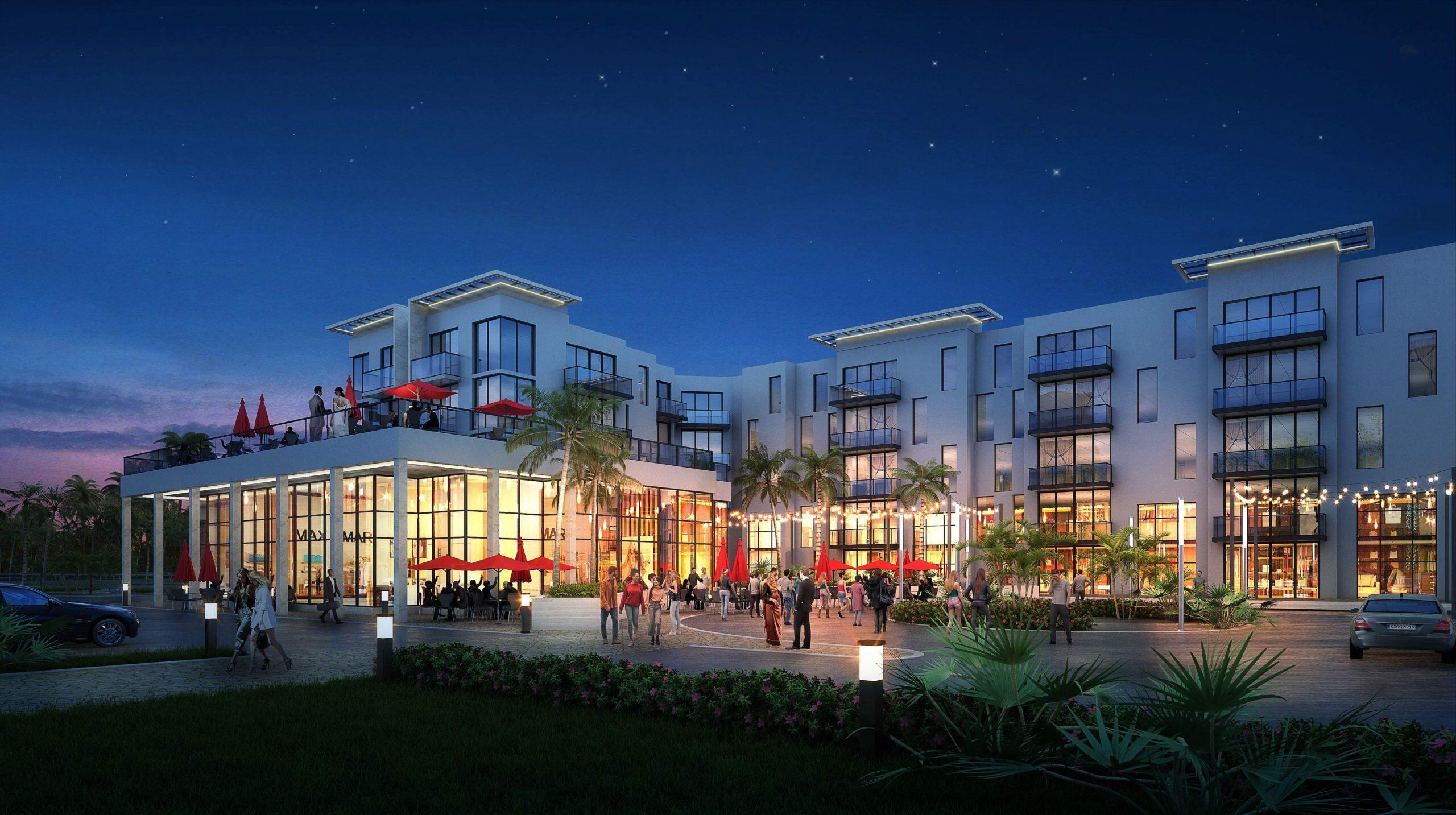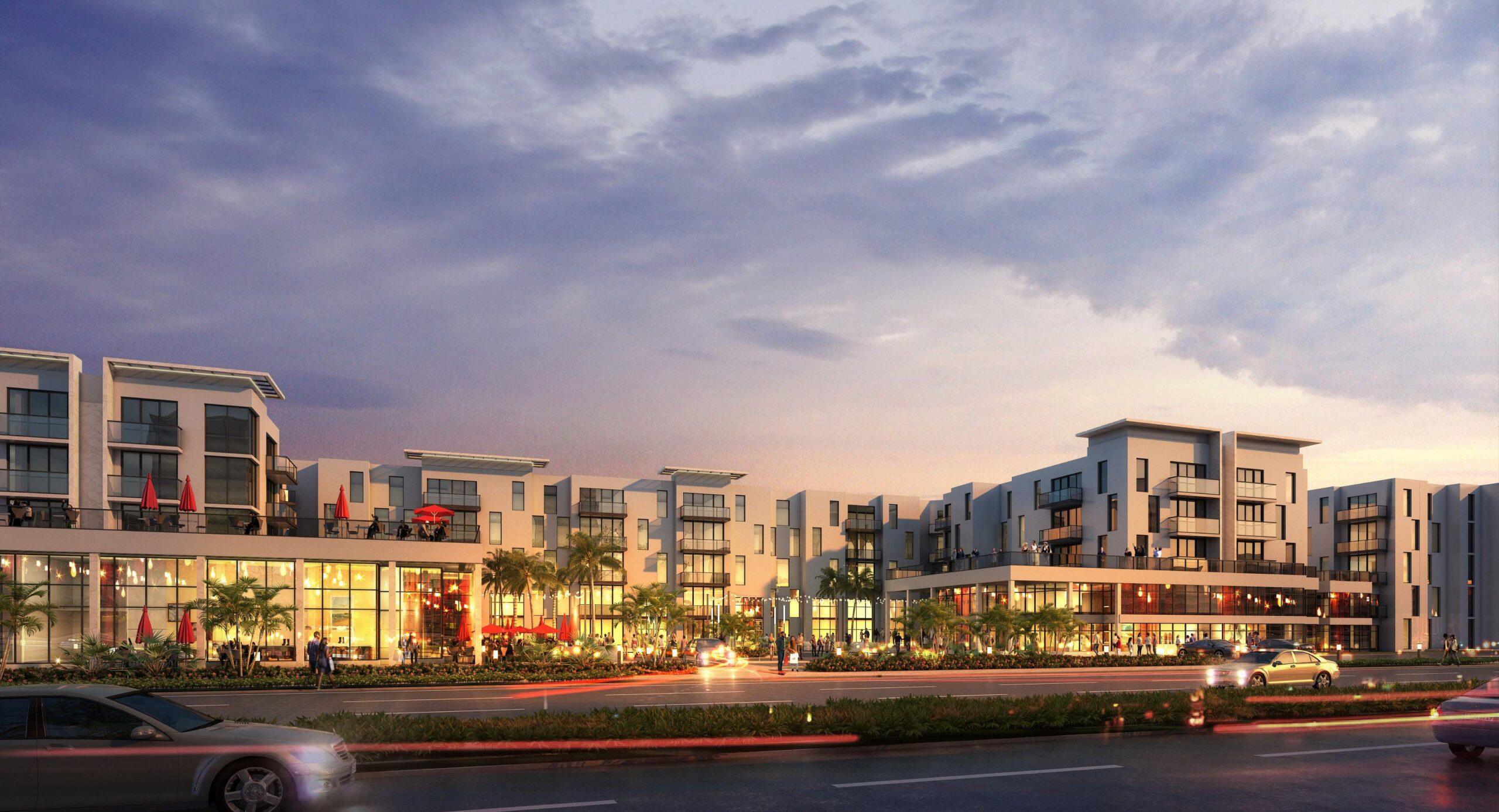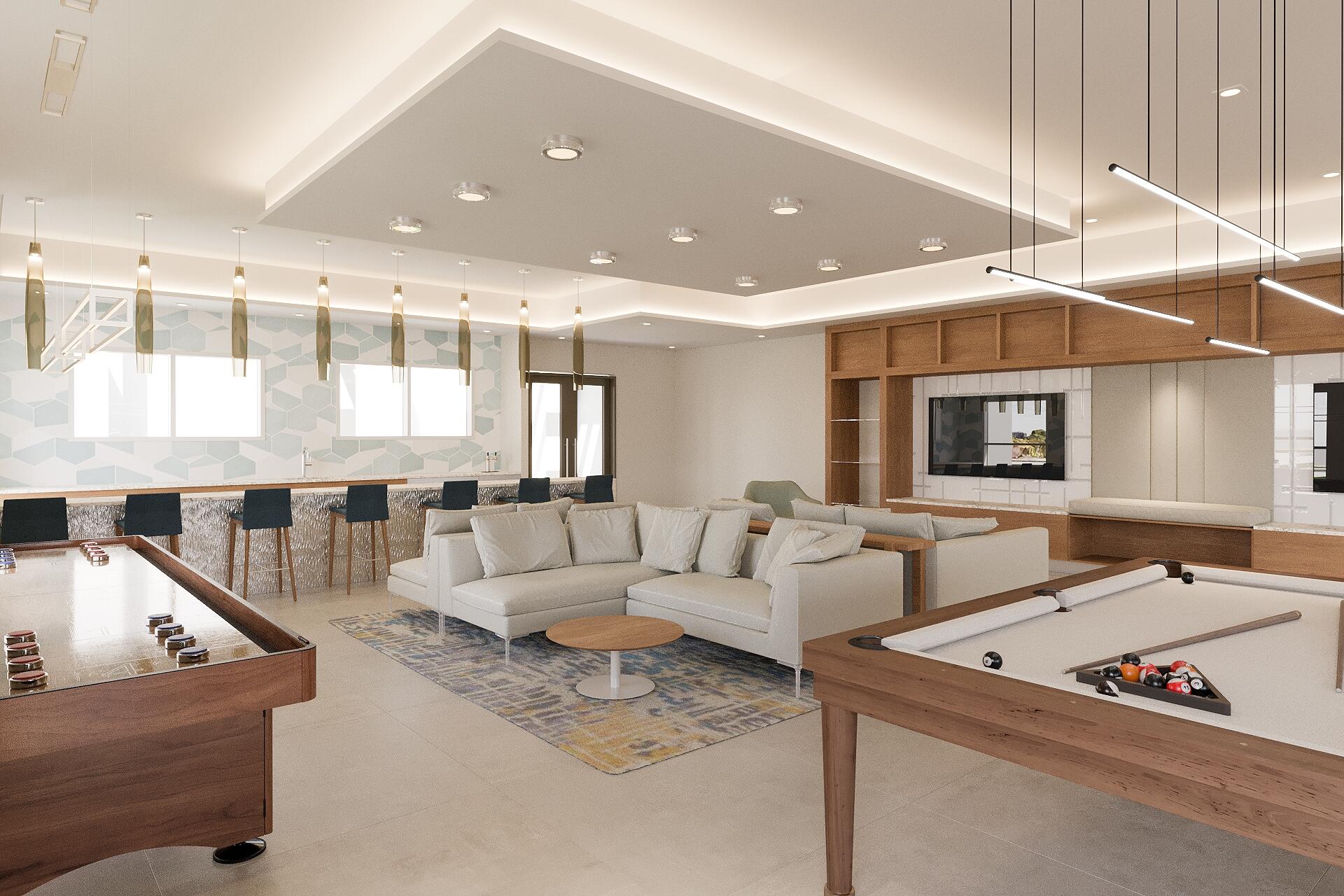Prospect Real Estate Group’s Vertical Platform Fuels Its Robust Multifamily Development Pipeline

Pictured: Navish Chawla, Willie Frias, Richard Zahn, Michele Zahn
Building a high-quality product at a discount to the market are the ingredients that have fueled Prospect Real Estate Group’s rise in the multifamily industry with over 5,000+ units currently under entitlement and construction.
Where rising interest rates are putting a damper on multifamily development across the country as inflation and rising construction costs have yet to subside, almost everyone is feeling the pressure. Prospect Real Estate Group (PREG) is among a handful of groups that are navigating the rough waters better than others. The firm is leveraging its vertically integrated development and construction platform to generate significant construction cost savings that are keeping returns firmly on track for its investors.
Since the pandemic, the multifamily industry has experienced double-digit increases in material costs and shortage of availability of product causing construction pricing to escalate dramatically. In the Southeast, where the cost to build a five-story wood frame apartment is hovering around $180-$200 gross per foot, PREG is able to deliver high-quality projects at $30 to $35 per foot lower than its peers because it controls many of its subcontractors — which translates into a multi-million dollar savings on hard construction costs. “Such cost efficiencies are always important, but it matters even more in this market where interest rates are really affecting deals and pricing other developers out of the market,” says PREG’s Chairman Richard Zahn.
Established in 1987, PREG is a vertically integrated multifamily developer and contractor that has built $4.2+ billion in projects and grown to a staff of more than 1,400, including its subcontractors. Over the last 10 years, the company has expanded, now owning and operating several core businesses under the PREG umbrella, including:
- Advantis Development, a development arm
- Devcon Site
- Devcon Concrete
- Devcon MEP (mechanical, electrical, plumbing)
- BCC Construction
- PCDG Construction, a certified Women’s Business Enterprise
- National Supply, the procurement arm of the company
That integrated group of companies creates a strong competitive edge by allowing PREG to enhance ownership and control, mitigate supply chain issues, maintain quality and consistency in workmanship to maintain construction schedules – all while minimizing the overall cost. “The emphasis on controlling many of the construction trades in-house has allowed us to grow exponentially in the marketplace. Over the last two cycles, we strategically acquired a MEP division and started manufacturing concrete for our sites,” says PREG’s CEO, Michele Zahn, a 26-year veteran of the firm that has navigated through a myriad of market cycles.
PREG has a national footprint with a particular focus today in key markets across the Southeast, such as Nashville, Charlotte, Charleston, Atlanta and Florida. The company’s West Coast division also is actively developing in Utah, Nevada and Washington state. “Across our tenure that dates back to the late 1980s as a construction and development team, we have experience in just about every major market throughout the U.S.,” says Richard Zahn.
Verticality generates huge cost savings
Each of PREG’s operating companies fulfills a critical role in the development process. Having in-house MEP alone provides a massive cost advantage as that area tends to be the most expensive trade in horizontal construction. Another big advantage for the company was moving into concrete manufacturing for its projects, which has been key to keeping its construction costs down amid inflation and supply chain pressures.
“The verticality of the construction side of the business where we can build 15% to 20% cheaper in a market where interest rates are squeezing returns is a big competitive advantage that makes every one of our projects attractive from a return perspective,” says Navish Chawla, managing partner of PREG’s Advantis Development.
Effectively, lower hard costs have a multiplier effect because it draws down the overall loan amount and less financing costs, adds Chawla. “There are signs that construction costs may start to come down, but it hasn’t happened yet. What that means for the broader multifamily construction industry is that six out of 10 projects in the market are on pause, or just not happening,” he says. Yet PREG sees a good runway ahead with strong demand from both renters and capital partners.
Capital partners spur growth
“Building and designing a consistent product and utilizing our in-house construction team to price costs during the pre-development phase has allowed us to create a streamlined process for our formidable entitlement team. This practice creates cost efficiencies and allows us to secure development sites in core markets at a more accelerated pace than our peers” says Willie Frias, managing partner of PREG’s Advantis Development. Those factors, along with a healthy balance sheet and liquidity, allow PREG to continue executing on deals and growing its pipeline in the current market. PREG remains among the top 20 active multifamily developers nationally based on annual starts. The firm currently has 20 projects under construction or in development spanning about 5,000 units, of which close to 3,000+ units are slated to break ground in 2023.
Another key differentiator for PREG is that the company has built solid, long-term relationships with key capital partners and forward buyers with firms, such as American Landmark, a national apartment owner/operator and Midtown Capital Partners, a South Florida-based owner/operator, among several others, which has helped capitalize a steady pipeline of projects.
“Our partnership with Midtown Capital came at a very dynamic moment in the most recent market cycle. They needed a development and construction team with vast core market experience to team up with their co-development desires to expand their multi-family platform,” says Richard Zahn.
Midtown has vast experience at raising equity through their SEC-regulated fund, which married well for the massive land portfolio PREG had amassed during the COVID pandemic, adds Zahn. This match created a dynamic partnership that has grown to hundreds if millions of dollars of development projects in a joint venture with PREG-Advantis and Midtown Capital.
PREG has several projects in its pipeline with a heavy emphasis on South and Central Florida. For example, the company is currently entitling a 700+ unit, wood frame project near Melbourne, Florida. The region near the Kennedy Space Center and Cape Canaveral Space Force Station is home to a variety of defense manufacturers and government jobs, including NASA and Blue Origin. Although the product is geared towards workforce housing, the ability to deliver a high-quality project under $250,000 a unit bodes well for PREG investors as the market has seen a flurry of trades in the low to mid 300,000 a door.
“We have been fortunate that our site selection and construction basis has allowed us to successfully capitalize many of our deals because the story tells itself,” says Chairman Richard Zahn. “Even though the waters will be rough ahead and we are steering into the wind, we will be poised to outperform our peers in almost any market environment or cycle because of our verticality”



